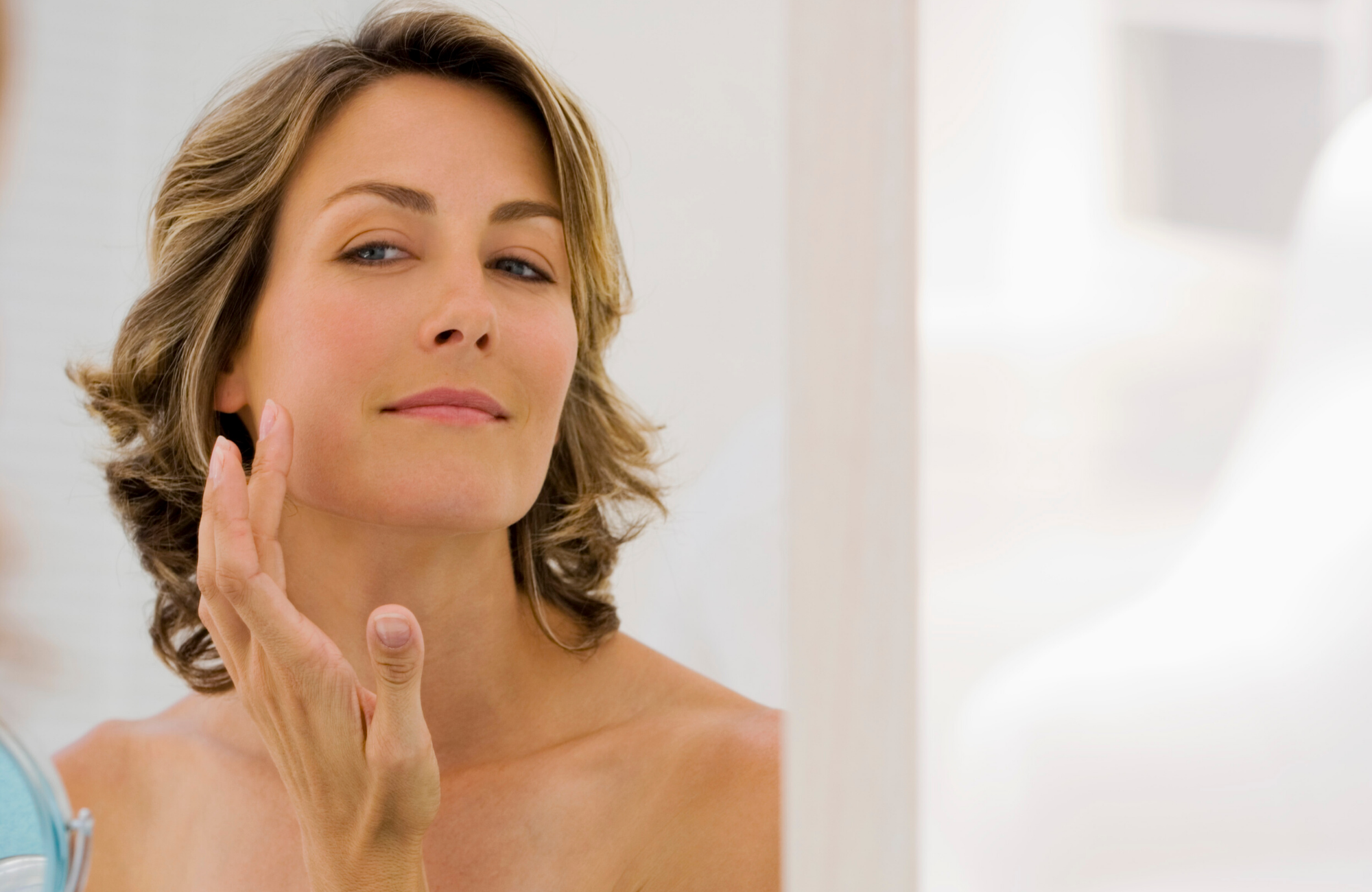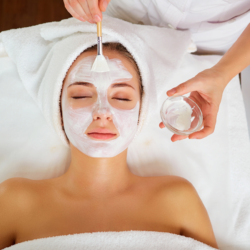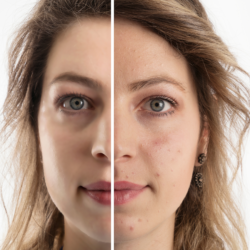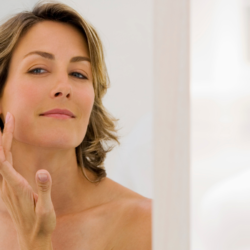Hormonal acne is not just a term used by medical personnel, it is also used by regular people, found on the internet, in magazines and other media outlets. Yes, acne has a big association with hormones, but there is no such thing as a type of acne caused only by a hormonal imbalance.
Either way, hormonal acne is also known as adult acne to differentiate it from the acne that teenagers suffer from. It can affect adults at any age and is more common in women due to contributing factors like menstruation, pregnancy and menopause. Studies show that 50% of women between 20 and 29 years old have acne, reducing to 25% in women between 40 and 49 years old.
Hormonal acne has the same causes of common acne: the existence of clogged pores due to the increase of dead skin cells and skin oil, bacterial proliferation due to poor hygiene with the subsequent inflammatory reaction to these conditions. In addition to these causes, the condition that gives its name to this “type” of acne is the increase in testosterone production, which leads to more production of sebum and skin oil.
In women, the hormonal imbalance can be caused by a series of medical conditions that these days are becoming more and more common. As stated above, menstruation and menopause, two natural conditions that affect women, can alter their hormonal system. Medical issues such as polycystic ovarian syndrome (POS), diabetes, metabolic syndrome and increased androgen levels are highly related to acne.
There are many treatment options to control hormonal acne. First, you have to treat it like how common acne is treated. Keep a daily routine in which you cleanse your skin with salicylic acid-based products (read more about salicylic acid in our blog), use daily treatment pads with AHAs (alpha hydroxy acids), water-soluble acids made from sugary fruits that help peel away dead skin at the surface and BHAs (beta hydroxy acids), oil-soluble acids that can get deeper into your pores to remove dead skin and access sebum, and always remove your makeup before sleep.
In your day to day life, try to avoid bad habits that promote acne such as touching your face too often, over-cleaning your face which leads to dryness that then triggers more oil production. Include good habits for healthier skin like cleaning your cell phone, getting enough sleep, maintaining a healthy hydration status and diet, among others. Read our blog for more healthy lifestyle habits to combat acne.
Try not to stress too much. This is a factor that aggravates an already existing condition by affecting your hormonal system. Stress can increase the levels of androgens and cortisol, leading to abnormalities in your skin´s structure and function, with the subsequent appearance of oily skin and acne breakouts. It also increases blood flow to your skin so this will appear inflamed, red and irritated. The cure for stress? It depends on the individual, but you can start with physical activity and meditation.
Now, it is time to indicate a more specific treatment for hormonal acne. Specialists recommend the use of various medication to try to balance your hormones levels. The FDA has approved the use of oral contraceptives in women to increase estrogen and progesterone levels, which would help to control acne. Though it can take up to 6 months to see results, this is a highly used and often recommended therapy. Consult your physician to see if this may be the right treatment for you.
If oral contraceptives do not work with you or you have certain medical conditions that contraindicate its use, your dermatologist may recommend spironolactone. This is a medication that is used to treat high blood pressure but can also balance your hormonal system.
Retinoids (a class of chemical compounds that are vitamers of vitamin A or are chemically related to it) are a simple way of dealing with hormonal acne. These are good for blemishes and wrinkles, but also for cellular regeneration and pore decongestion. Using topical retinoids can prevent the generation of new blackheads in the future. An important thing to remember is that retinoids cause photosensitivity, so apply at night and for daytime use a sunblock after an oil-free moisturizer. In severe cases of acne, your doctor may combine these products with an antibiotic to reduce bacterial population.
Watch your diet. Avoid consuming added sugar products to maintain normal insulin levels. Also, stay away from fatty, oily foods, red meats, and dairy products, which are rich in hormones that can influence the appearance of acne. Instead, consume more fruits and vegetables. These are full of vitamins, micro-nutrients, and water, which will give you a healthier skin.
Finally, there are many natural remedies to treat hormonal acne. Examples of these are applying green tea, massaging your face with eucalyptus or tea tree oil, applying a paste of cinnamon and honey or one of turmeric powder, applying the juice of a lemon, putting a mask of mashed avocado and cucumber or one of clay and jojoba oil on your face 2 or 3 times a week.
Read More Blogs






